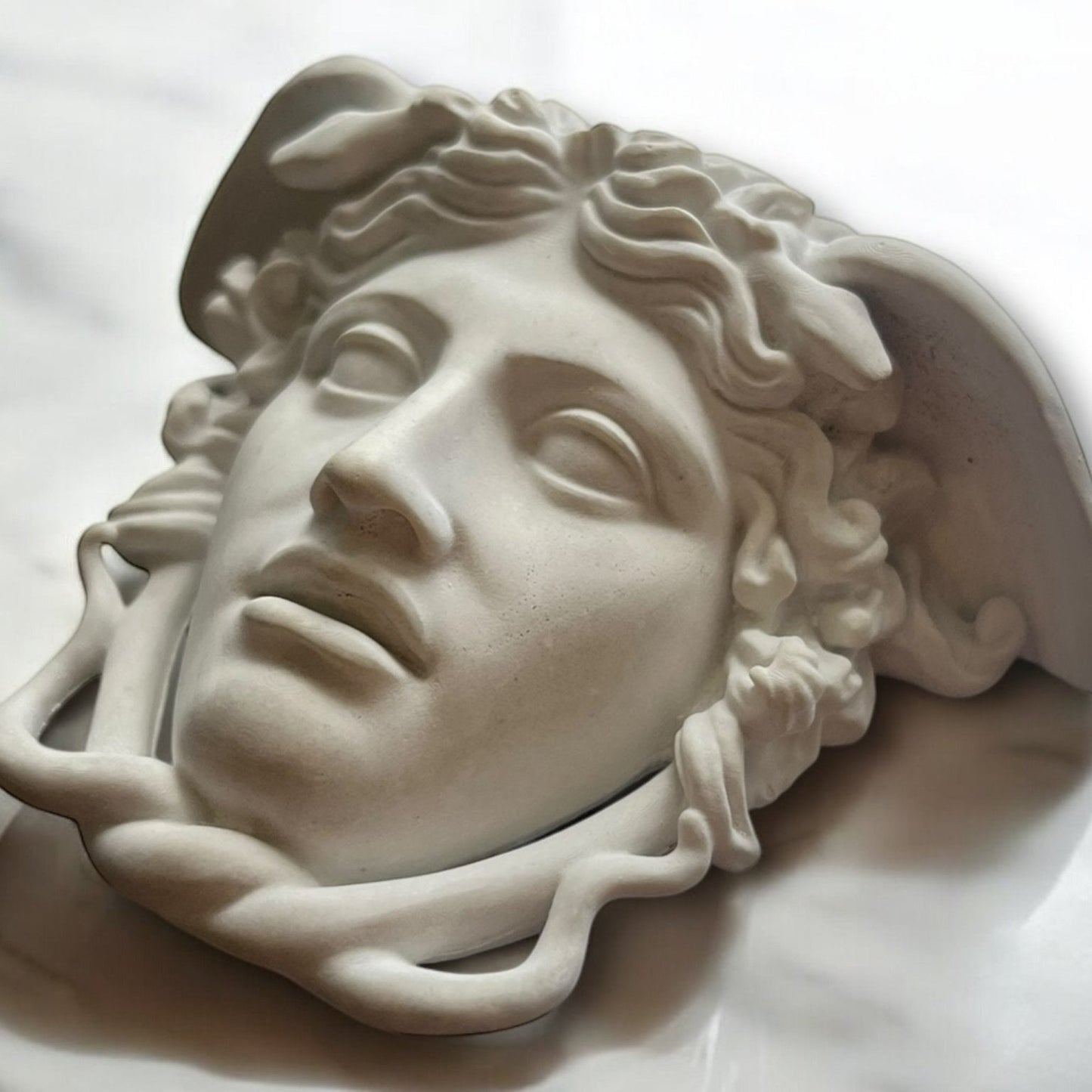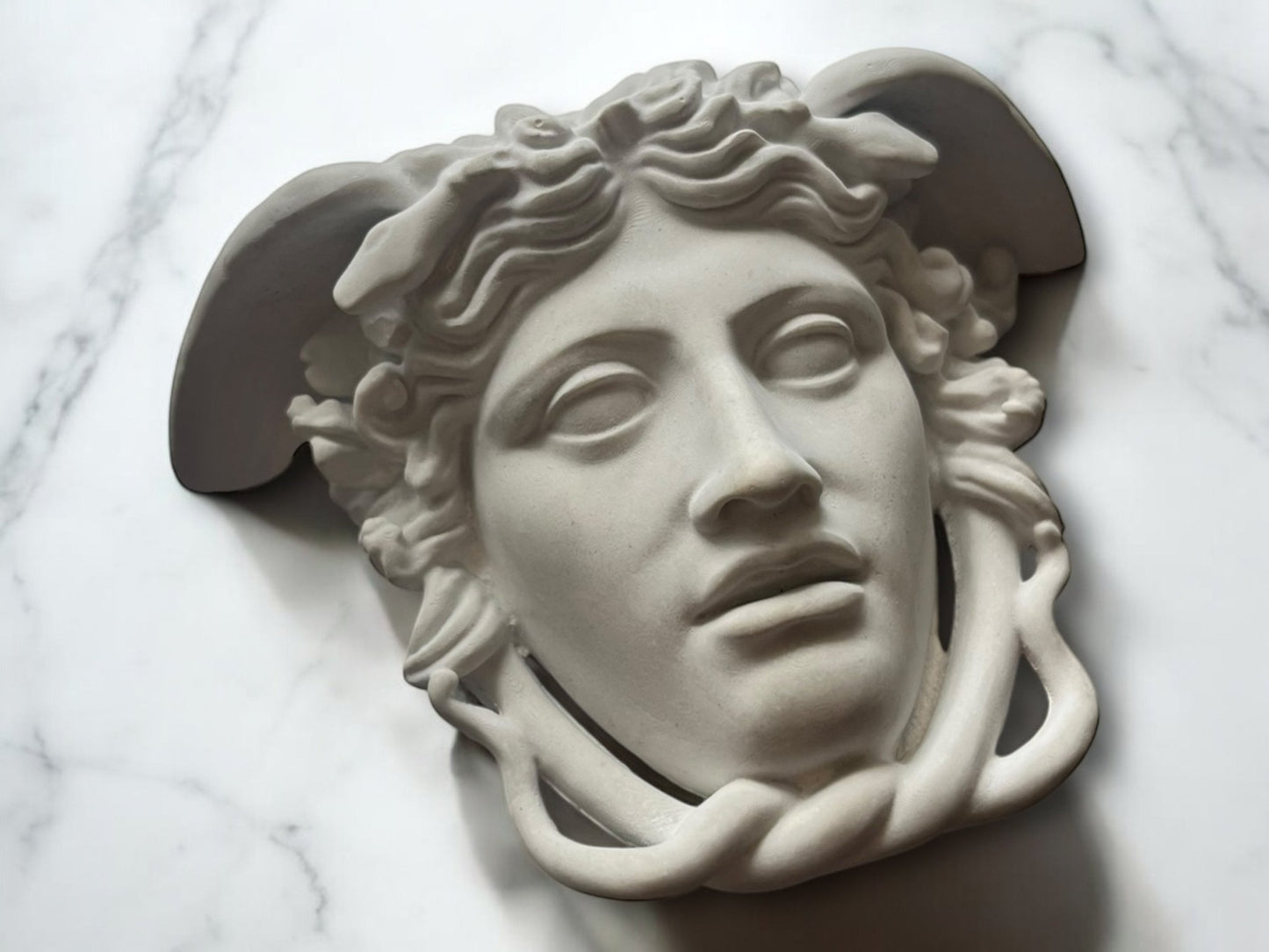Bétonnière Parisienne
Medusa Rondanini - Greek Gorgon Statue Cast - Greek Mythology
Medusa Rondanini - Greek Gorgon Statue Cast - Greek Mythology
Couldn't load pickup availability
Cast of the Rondanini Medusa. Original dated 447-438 BC. Use of Ultra High Performance Concrete or Mortar.
These limited editions are handmade in my Atelier, under the roofs of Paris. These models are white "foam" in color, speckled with mineral inclusions of different shades of gray.
The artisanal nature of this production may result in variation from one piece to another.
The Jellyfish, size S, weighs approximately 100 grams and has the following dimensions:
- Width 8 cm
- Depth 3 cm
- Height: 6.5 cm
The Jellyfish, size M, weighs approximately 300 grams and has the following dimensions:
- Width 13 cm
- Depth 5 cm
- Height: 10.5 cm
Whether it's for Mother's Day, Father's Day, a birthday, a party, a housewarming, Christmas, or any other occasion, we think that this item is an original gift for any lover of Greek mythology, office objects and/or decoration.
Order sent in a cardboard shipping box, item held in place with wooden curls. Delivery via La Poste's Colissimo service.
For history, among the outstanding figures of Greek mythology, Medusa stands out as one of the most famous. The only mortal among her sisters and renowned for her great beauty, she attracted the attention of Poseidon, who fell in love with her. Despite her refusal of the god's advances, the latter united with her in a temple dedicated to Athena. This desecrating act triggered the wrath of the goddess, who transformed Medusa into a fearsome monster, with a gaze capable of petrifying anyone who crossed it. According to legend, Medusa was defeated by the hero Perseus. With the help of the gods, he received a sharp sword from Hermes and a polished shield from Athena. The latter allowed him to observe Medusa's reflection without meeting her direct gaze, thus avoiding being petrified. Thanks to this ruse, Perseus managed to decapitate the monster. As a token of gratitude, Perseus offered the head of Medusa to Athena, who incorporated it into her aegis, a mythical weapon sometimes described as a goatskin or a serpentine attribute. This symbol, associated with the goddess, is frequently represented in Greek sculptures, allowing her to be identified unequivocally throughout the centuries.
Share



